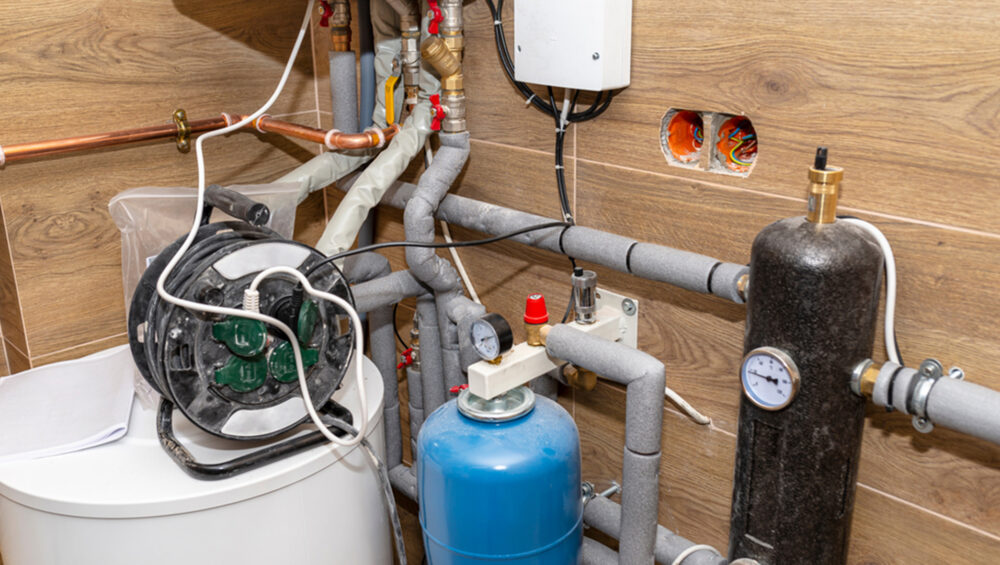Choosing the best heating solution for your home depends on various factors. Think about cost, availability, efficiency, and environmental impact. Oil, propane, and wood are popular choices. Each has its benefits and drawbacks. In this blog, we’ll look into the differences between these heating options to help you decide what best suits your needs.

Oil Heating: Traditional but Costly
Advantages:
Oil heating systems have been used for decades and are known for their reliability and high heat output. Oil furnaces can generate significant warmth. This makes it a solid choice for homes in colder regions.
- Consistent heat: Oil heaters can provide consistent warmth, maintaining a cozy indoor environment even during the harshest winters.
- Established supply chains: Oil delivery services are widespread, so it’s relatively easy to find an oil supplier in most areas.
Disadvantages:
- Cost: Oil prices are subject to market fluctuations, making this an expensive heating option in some regions. The upfront cost for an oil furnace can also be high, adding to the overall expense.
- Environmental impact: Burning oil releases a considerable amount of carbon dioxide into the atmosphere.
Propane Heating: A Flexible and Efficient Choice
Advantages:
Propane is a popular option because of its versatility and efficiency. It’s an excellent choice for heating homes, particularly in areas where natural gas isn’t available. Propane can be used for not just heating but also for cooking, drying clothes, and powering appliances.
- Efficiency: Propane heating systems are highly efficient. They convert up to 90% of the fuel into usable heat.
- Lower emissions: Compared to oil, propane burns cleaner, producing fewer greenhouse gases and pollutants. It is an environmentally friendly option.
- Versatility: You can store propane in various tank sizes based on your needs. Homeowners can easily find propane tanks for sale and schedule propane delivery for refills.
- Convenience: With propane delivery near me options, scheduling a refill is easy.
Disadvantages:
- Storage: Propane requires an outdoor storage tank, which can be an eyesore and may take up yard space. However, small propane tanks are also available for more compact spaces.
- Initial costs: While propane heaters are efficient, the initial setup can be pricey. You’ll need a propane tank refill or a home propane tank refill periodically, depending on usage.
- Availability: While propane is widely available, it may not be as prevalent in some rural areas compared to oil or wood.
Wood Heating: Traditional and Sustainable
Advantages:
Wood heating appeals to those looking for a sustainable and renewable energy source. It’s especially popular in rural areas, where wood is readily available.
- Low cost: Wood is often cheaper than oil or propane, especially if you live in an area with abundant forests. You can even cut your wood if you have access to land, which can save significant costs.
- Renewable energy: Wood is a renewable resource, and when harvested sustainably, it has a smaller carbon footprint compared to fossil fuels.
- Aesthetic appeal: Wood-burning stoves or fireplaces create a cozy, rustic ambiance, adding charm and character to your home.
Disadvantages:
- Labor-intensive: Heating with wood requires more work than other options. You’ll need to chop, store, and stack wood, as well as maintain your fireplace or wood stove regularly.
- Efficiency: Wood heating systems are less efficient compared to propane or oil, and much of the heat can escape through the chimney. It’s difficult to regulate the temperature as precisely as with other systems.
- Air quality: Burning wood can release particulate matter into the air, which can be harmful to your health and the environment.
Conclusion
Ultimately, the best heating solution for your home will depend on your budget, location, and preferences. If you’re looking for a reliable heating system with lower environmental impact and easy access to fuel, propane might be your best bet.


